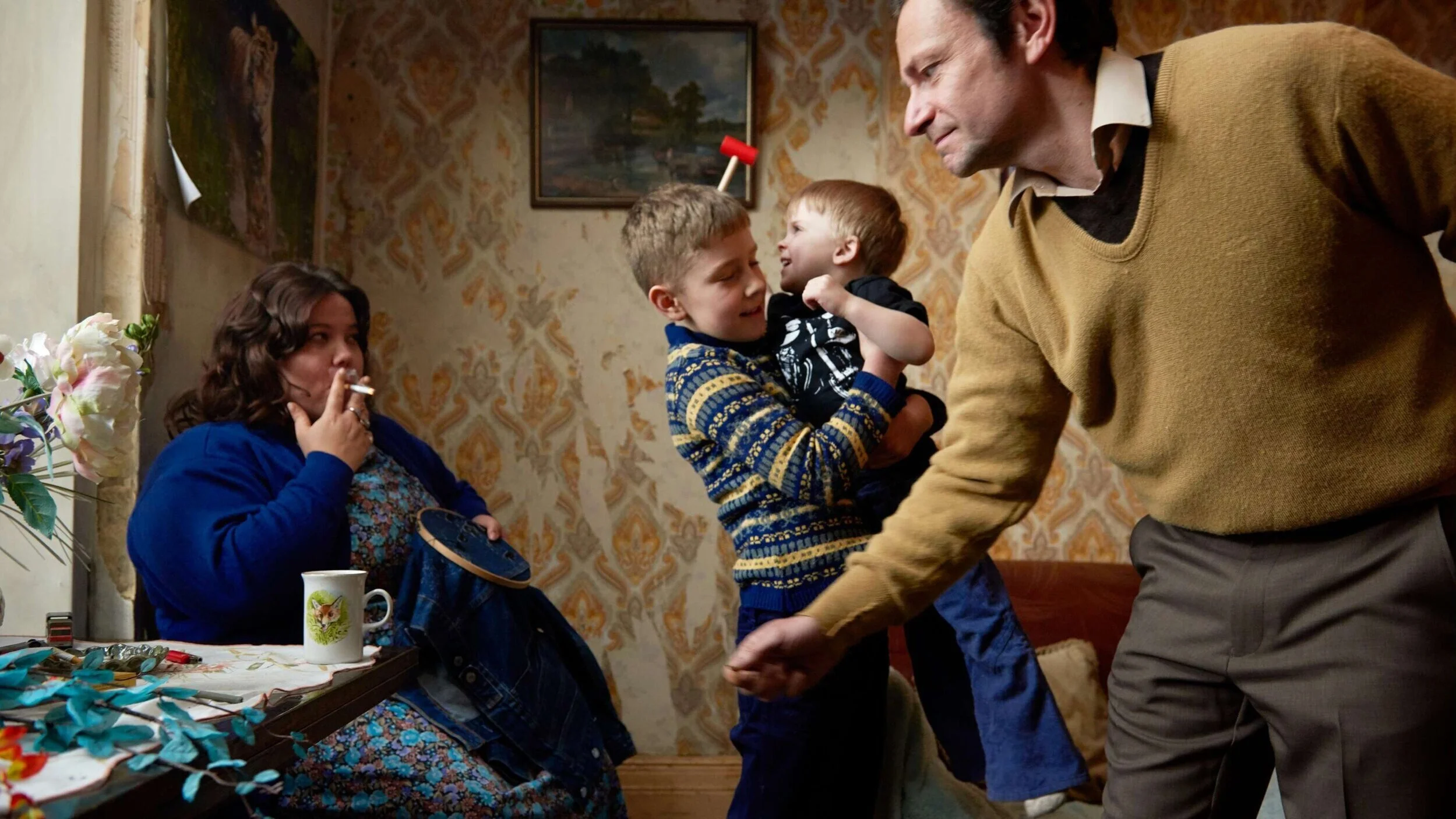Ray & Liz
The detailed eye of a true artist informs this look back to a British childhood in the 1980s.
Films that are clearly works of art come along only rarely but Richard Billingham’s Ray & Liz, which marks his debut, is one of them. Billingham is both writer and director and, while I am not certain that he has entirely achieved his aims with this work, I can say with certainty that what we see on screen takes us into a world that is entirely his. Until now Richard Billingham’s reputation has been based principally on his work as a photographer, work that has extended to picture books and to video shorts. Even then he was finding subject matter in the lives of his parents, Ray and Liz, and now, on turning to the cinema with a full-length feature, he has made them central figures. We first meet Ray (Patrick Romer) living alone in the Birmingham area and drinking heavily, but this study of him in his later years is essentially there to provide a framework for extended flashback sequences dealing with earlier days. Here we observe Ray (now played by Justin Salinger) and Liz (Ella Smith) when their sons, Richard and Jason, were youngsters. The first of the flashbacks is set when Richard (Jacob Tuton) was ten: it concentrates on the events of a single day and features an unsettling lodger (Sam Gittins) and the boys’ uncle (Tony Way). Subsequently a second flashback stresses the unhappy childhood of the younger brother, Jason (Joshua Millard-Lloyd), at a time when he was nine years old, Richard by then being sixteen.
Both flashbacks take place in the 1980s and what I had read about Ray & Liz before seeing it implied that its portrayal of desperate lives should be read as an attack on Thatcher’s Britain. Even though the main focus seems to be centred on the impact of the parents’ life style on their children, it is indeed the case that the film looks back on Ray’s useless life just after he has been made redundant. Furthermore, a subsequent change of circumstance is noted as reducing the benefits on which the parents have been relying. However, if the title leads us to expect even more emphasis on Ray and Liz than we get and if the intention was to make us feel sympathy for the parents as victims of the politics of the time, we may be inclined to feel that Billingham has ultimately fallen short of his aims. But, even if he has, that scarcely matters.
What counts is the impact of a film that feels utterly authentic and which has been perfectly cast, together with the sense that the look of the piece (photographed in colour on 16mm by Daniel Landin) and the editing of shots (by Tracy Granger) capture Billingham’s artistic vision to the letter. This film feels as personal and as necessary as Gary Oldman’s Nil by Mouth (1997) and Paddy Considine’s Tyrannosaur (2011). But what is conveyed is less political than the tragedy of inadequate parents unable to pay proper attention to their children and as such it shares much in common with two other recent British films, Two for Joy and Jellyfish. All of these works are too downbeat to become commercial successes, but Ray & Liz, both for its similarities and for its distinctive qualities, should be much appreciated by admirers of the work of Terence Davies. However, even he found joy as well as pain and sadness when revisiting his childhood on film. Here only a short scene at a November 5th bonfire (an episode possibly influenced by 1961’s A Taste of Honey) gives this film a magical and positive moment. Nevertheless (and regardless of a conclusion that could be a little more sure-footed) Ray & Liz stands triumphant being a first feature by a talent that already feels fully formed. Remarkable.
MANSEL STIMPSON
Cast: Justin Salinger, Ella Smith, Tony Way, Richard Ashton, Joshua Millard-Lloyd, Jacob Tuton, Sam Gittins, Patrick Romer, Michelle Bonnard, Sam Dodd, James Eccles, Andrew Jefferson Tierney.
Dir Richard Billingham, Pro Jacqui Davies, Screenplay Richard Billingham, Ph Daniel Landin, Ed Tracy Granger, Costumes Emma Rees.
Jacqui Davies/Severn Screen-New Wave Films.
108 mins. UK. 2018. Rel: 8 March 2019. Cert. 15.


